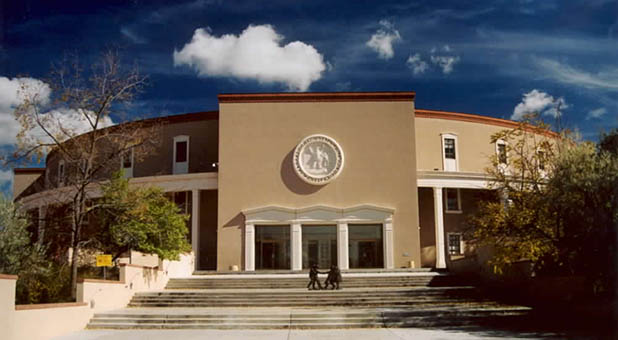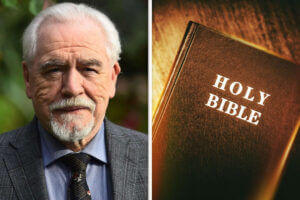When it comes to threatening the free speech rights of American citizens, progressives have largely been the culprits at the federal level.
Yet increasingly, Republican state legislators have taken up this crusade.
Last month, New Mexico Gov. Susana Martinez rightly vetoed a Republican-supported bill that would have forced nonprofits to disclose their supporters’ personal information, saying it would “likely discourage charities and other groups that are primarily non-political from advocating for their cause.”
Now, New Mexico’s Democratic secretary of state might impose the same disclosure requirements through campaign finance rules she plans to unveil later this year.
Nonprofits also came under attack this January in South Carolina. There, Republican state Sen. Hugh Leatherman introduced a bill that sought to limit the type of speech nonprofit groups could engage in when participating in public policy debates.
Things aren’t much better in South Dakota. Last year, voters in that state narrowly passed a ballot initiative that would have drastically changed state campaign finance laws.
That measure, which was overturned by the legislature in January, sought to subsidize political campaigns with taxpayer dollars and require additional disclosures of private information that could have opened citizens up to harassment.
Then came a political tiff in Missouri that spilled over into a threat to free speech.
After state Sen. Rob Schaaf found himself at odds with Republican Gov. Eric Greitens throughout the legislative session, a nonprofit group that supported the governor repeatedly criticized the senator.
In return, Schaaf doubled down by proposing legislation he had previously introduced that would force nonprofits to report the names and personal information of their private supporters.
Proponents of these kinds of disclosure bills claim transparency is their goal. But we require transparency from government, not the other way around.
As the U.S. Supreme Court noted in 1958’s landmark NAACP v. Alabama opinion, there is a “vital relationship between freedom to associate and privacy in one’s association,” and the revelation of the identity of the NAACP’s “rank-and-file members has exposed these members to … loss of employment, threat of physical coercion, and … public hostility,” among other forms of intimidation.
Threats of intimidation for holding certain beliefs still persist. And with modern technology, disclosed membership lists could be accessed by internet trolls, social media mobs and protest organizers in mere seconds.
A few strokes of the keyboard and suddenly, a reputation is destroyed, a business boycotted into ruin, or a home vandalized because an individual donated to the “wrong” nonprofit.
In addition to compelling private organizations to disclose their supporters, some measures, like those in South Dakota and Missouri, also give tremendous power to state ethics commissions.
While seemingly benign, charging these bodies with regulating and enforcing disclosures poses a significant threat to private citizens’ right to support causes in which they believe.
Deborah Jordahl, a political consultant in Wisconsin, can speak to this firsthand.
In 2013, armed law enforcement officers executed a predawn raid of her home. They confiscated records, computers and smartphones; prevented her from calling her lawyer; and told her that she wasn’t allowed to tell anyone about what happened.
Jordahl was not alone in this. Several other private citizens in Wisconsin had their homes ransacked and lives upended in what came to be known as the John Doe investigation, carried out at the behest of the Wisconsin Government Accountability Board and a special prosecutor.
Another private citizen targeted in the investigation, Cindy Archer, said, “It destroyed my career, it destroyed my life, it changed who I am.”
What were their crimes?
They didn’t commit any. They engaged in lawful policy advocacy as private citizens. Powerful officials just happened to disagree with them.
Lawmakers who support disclosure laws appear oblivious to the potential for such abuse. One South Dakota legislator asked, “Why are you afraid to associate your name with something you support?”
The answer is retaliation, as Schaaf can attest. Recently, he said he and his colleagues have “to be able to have a free and fair discussion,” and not be “afraid of doing the right thing” simply because someone might run ads ridiculing them.
If Schaaf and other elected officials, who have chosen to be public figures, could be silenced by fear of ridicule, then certainly he should understand why private citizens might be hushed by his disclosure law.
Anonymous speech has been part of the American political tradition since our founding. In “Common Sense,” “the Federalist Papers,” and other works, anonymity allowed ideas to be spoken without threat of intimidation and heard without bias.
Politicians who advance disclosure laws are showing they would rather attack the speaker than debate issues and ideas on their merits. This is corrosive to our democratic process. Anonymous speech is not. {eoa}
Jeremy Cady is the Missouri state director of Americans for Prosperity. Dan Caldwell is the director of policy for Concerned Veterans for America.
This article was originally published at DailySignal.com. Used with permission.
See an error in this article?
To contact us or to submit an article























